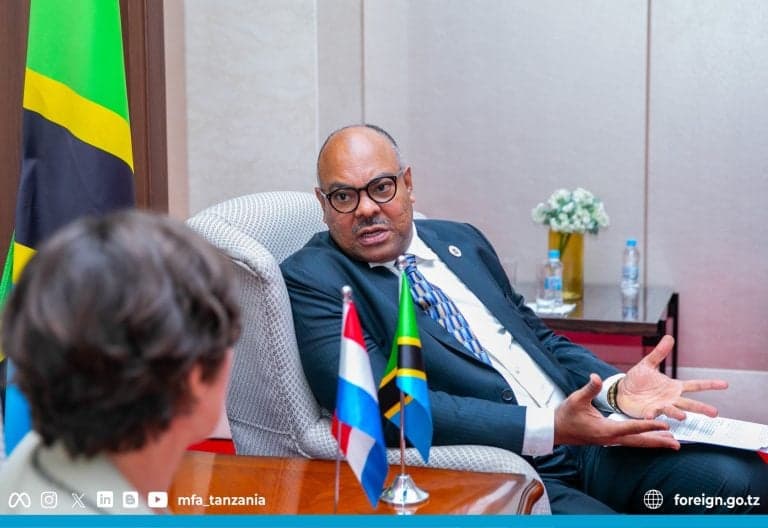We're loading the full news article for you. This includes the article content, images, author information, and related articles.
Tanzania’s government has refuted allegations by the main opposition party, CHADEMA, that over 700 people were killed in post-election protests, escalating a political crisis that poses significant stability questions for Kenya and the East African Community.

DAR ES SALAAM – Tanzania's government has sharply contested claims by the opposition CHADEMA party that security forces have killed more than 700 people in nationwide protests following the country's disputed general election on Wednesday, October 29, 2025. In the government's first public remarks on the casualty figures, Foreign Affairs Minister Thabit Kombo described the opposition's numbers as "hugely exaggerated" and denied that security forces had used excessive force.
The allegations and denials mark a severe escalation in the political turmoil gripping the East African nation, a key partner for Kenya within the East African Community (EAC). The unrest erupted after the election, which saw President Samia Suluhu Hassan seek a new term. Major opposition parties, including CHADEMA, were barred from participating, and their leaders were reportedly jailed, leading to widespread accusations of a rigged process.
According to CHADEMA spokesperson John Kitoka, the party compiled the death toll from a network of members visiting hospitals and clinics. He stated on Friday, October 31, 2025, that approximately 350 people were killed in the commercial capital Dar es Salaam, over 200 in the city of Mwanza, with the remainder of the deaths occurring in other regions. The party has called for a transitional government and fresh elections.
However, verifying these claims has been exceedingly difficult. The Tanzanian government imposed a nationwide internet blackout on election day, which has severely hampered the flow of information. Foreign journalists have also been largely barred from covering the events.
International bodies have offered far more conservative, yet still grave, estimates. The United Nations human rights office announced on Friday that it had received credible reports of at least 10 fatalities in Dar es Salaam, Shinyanga, and Morogoro, where security forces allegedly used live ammunition. Amnesty International stated it had received information suggesting at least 100 people had been killed. Both organizations, along with UN Secretary-General Antonio Guterres, have called for impartial investigations into the use of excessive force.
The post-election violence follows months of escalating political tension and repression. Human rights organizations, including Human Rights Watch and Amnesty International, had warned of a deteriorating situation in the lead-up to the vote. Their reports documented a "wave of terror," including arbitrary arrests, enforced disappearances of government critics, and extrajudicial killings. The government, through spokesperson Gerson Msigwa, had previously dismissed an Amnesty International report as "unsubstantiated and misleading."
Protests broke out on Wednesday, October 29, as demonstrators took to the streets in major cities, tearing down campaign posters and clashing with a heavy deployment of police and military personnel. Authorities imposed a nighttime curfew in response to the unrest.
The crisis in Tanzania presents a significant challenge for regional stability. As a major trading partner and fellow member of the EAC, prolonged instability in Tanzania could have direct economic and security repercussions for Kenya. Violence has already been reported at the Namanga border crossing, a crucial trade artery between the two nations, highlighting the potential for cross-border spillover.
The situation forces a delicate diplomatic response from Nairobi, balancing the EAC's stated commitments to democratic principles with the need to maintain stable relations with President Hassan's government. Regional human rights groups have condemned the violence, stating it contravenes the core principles of the EAC. The unfolding events serve as a critical test for the regional bloc's conflict resolution and governance mechanisms. Further investigation is required to ascertain the full scale of the casualties and the trajectory of the political crisis.
Keep the conversation in one place—threads here stay linked to the story and in the forums.
Sign in to start a discussion
Start a conversation about this story and keep it linked here.
Other hot threads
E-sports and Gaming Community in Kenya
Active 9 months ago
The Role of Technology in Modern Agriculture (AgriTech)
Active 9 months ago
Popular Recreational Activities Across Counties
Active 9 months ago
Investing in Youth Sports Development Programs
Active 9 months ago
Key figures and persons of interest featured in this article